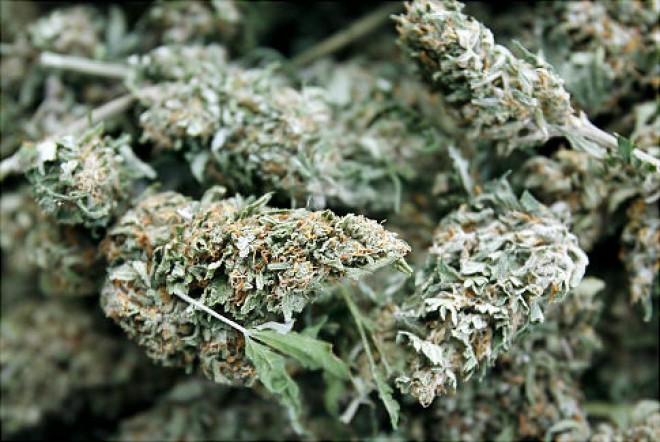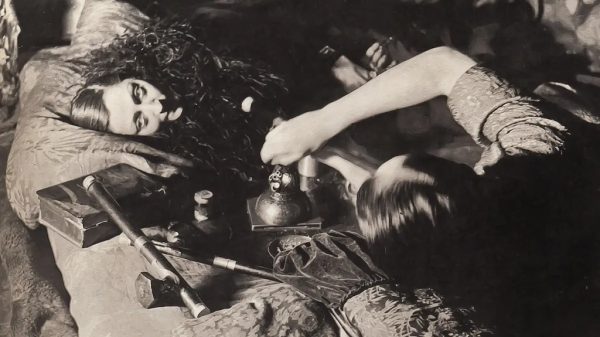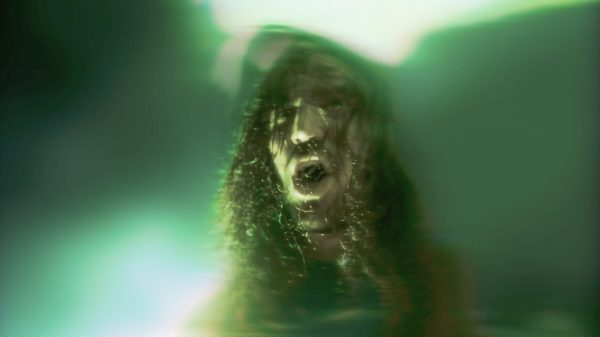Relax your mind and begin to float downstream – we are going to explore drugs by taking a look at drug laws in other countries, their effects, the artists that use them and the pros and cons of their use. Not unlike my articles on the occult, these are not the views or beliefs of CVLT Nation as a whole. I have personally done every drug I am going to explore here, but have not used recreational drugs in thirteen years, following fourteen years of use that ended with having to deal with some serious addictions. If you have read my other articles, it should come as no surprise my views on drugs differ greatly from the largely Christian recovery community. I feel all drugs should be legal, and do not take a militant straightedge like view of them; just because I can’t use them doesn’t mean other people should not. I had some very positive experiences on certain drugs and adhere to the hallowed words of the Butthole Surfers: “it’s always better to regret something you have done than something you haven’t done.” While some of my thoughts on the subject, as well as personal experiences, will be shared, I am going to attempt to maintain a somewhat neutral stance here.
Since it’s often called the “gateway drug,” we are going to first explore marijuana. While the buds and leaves of the Cannabis Sativa plant were used for medicinal practices that go as far back as 2737 B.C., the drug has only been used recreationally for the past 100 years. Pot is now getting more press in the states due to the election year, as the legalization buzz begins to swell, and members of “both” parties weighing in on the subject. Even though Jeb Bush admitted to being a stoner forty years ago at the last Republican debate, like most politicians, at the end of the day he, and the other candidates, will tell his constituents what they want to hear.
One of the experts on the subject, the late, great Bill Hicks, once said: “They tell you pot-smoking makes you unmotivated. Lie! When you’re high, you can do everything you normally do just as well. You just realize that it’s not worth the fucking effort. There is a difference.” I can attest to what Bill Hicks said – not only were my troubles whisked away in a cloud of bong smoke, but I didn’t care about much about anything except muting the sound on my TV and watching how the mouths of cartoons synched up with the Wu-Tang Clan. Researchers in the UK did a study on tokers and found that long-term use causes a lower production of dopamine, which plays a role in motivation and reward-driven behavior. The participants all started between the ages of 12 and 18. Teen brains are not yet developed, so when smoking pot the effects are more pronounced. Almost all doctors agree, and if you are a conspiracy theorist, as I can be, you might hold doctors’ views on drugs suspect, as they are in the back pockets of the pharmaceutical corporations. At this point, cannabis is not something those companies are going to profit from and they see it as a threat. But let’s pretend we are looking at the supposed facts collected by neutral forces. Brain scans have shown it effects memory. I can attest to the annoyance of forgetting where I put my keys and wallet on an almost daily basis, as even an hour after a wake-and-bake it could take me up to thirty minutes to get out the door.
Many smokers claim to have heightened creativity. Think more deeply into the nuances of sound. Movies were more gripping and immersive. This plays a factor in the widespread use among artists. If you are reading this, then you are already aware of the entire genre of doom-infused rock dedicated to smoking weed. The list of musicians who don’t smoke pot would probably be much shorter than the list of those who do. They all are paying as much homage to Black Sabbath as they are worshiping at the altar of the mighty bong.

According to the United Patients Group, some of the health conditions pot’s medicinal use is said to aid includes HIV, lymphoma, arthritis, fibromyalgia, shingles, stuttering, cystic fibrosis, restless legs syndrome and premenstrual syndrome. Some of the more suspect claims are mental health conditions such as anxiety, depression and schizophrenia, since marijuana can trigger psychosis and if you are already taking medication for a chemical imbalance it prevents those medications from doing their job as well. The studies that leaned toward positive outcomes for patients smoking marijuana reported the benefits came from weekly or occasional use, rather than the type of habitual daily use associated with self-medicating. They also credit some of the improvement to the fact that patients who smoked marijuana were more likely to drink less alcohol. My experience was it really depended on the day, sometimes it would create hallucinations and paranoia, other times it made me less depressed, though after not smoking for a few days the depression came back worse.
While in the states the attitudes in regards to Mary Jane are relaxing, is this the case in the rest of the world? Aside from the Netherlands, many countries are not as liberal as you might think. Even the supposed hip young people of Sweden think of smoking pot like Americans think of heroin. Most Scandinavian countries are legally non-tolerant of drugs; Norway has more of a sliding scale when it comes to pot – anything under 15 grams is considered for personal use. Prices tend to be on the steep side. People tend to smoke hash more than joints. The Green Party there calls for decriminalization, but doesn’t have the clout. The Swiss allow you to grow up to four plants, but transport is a no-no. Finland is down with medical marijuana, but don’t try growing it. Sweden might be progressive in many ways, but you are treated like a misanthrope even if you light up with a bunch of so-called hipsters.
Is it addictive? Well, it is the least addictive of drugs, but this depends upon your propensity to addiction. Its dependence is primarily psychological, so the underlying reason in regard to why someone smokes plays a large part. Someone who likes to take a toke on the weekends to listen to music or get creative inspiration is highly unlikely to develop any dependence with casual use. A good rule of thumb is how defensive do you get when its brought up? Defensiveness is a sign that we are not comfortable with some part of ourselves, and we are projecting that as seeing the other person as attacking us. If you could less what someone says about your use, and could actually care less whether you’re smoking or not, then you are in the clear. As with anything from alcohol to Twinkies, a healthy balance is usually the best path.


















